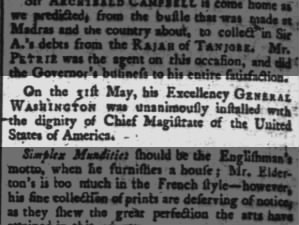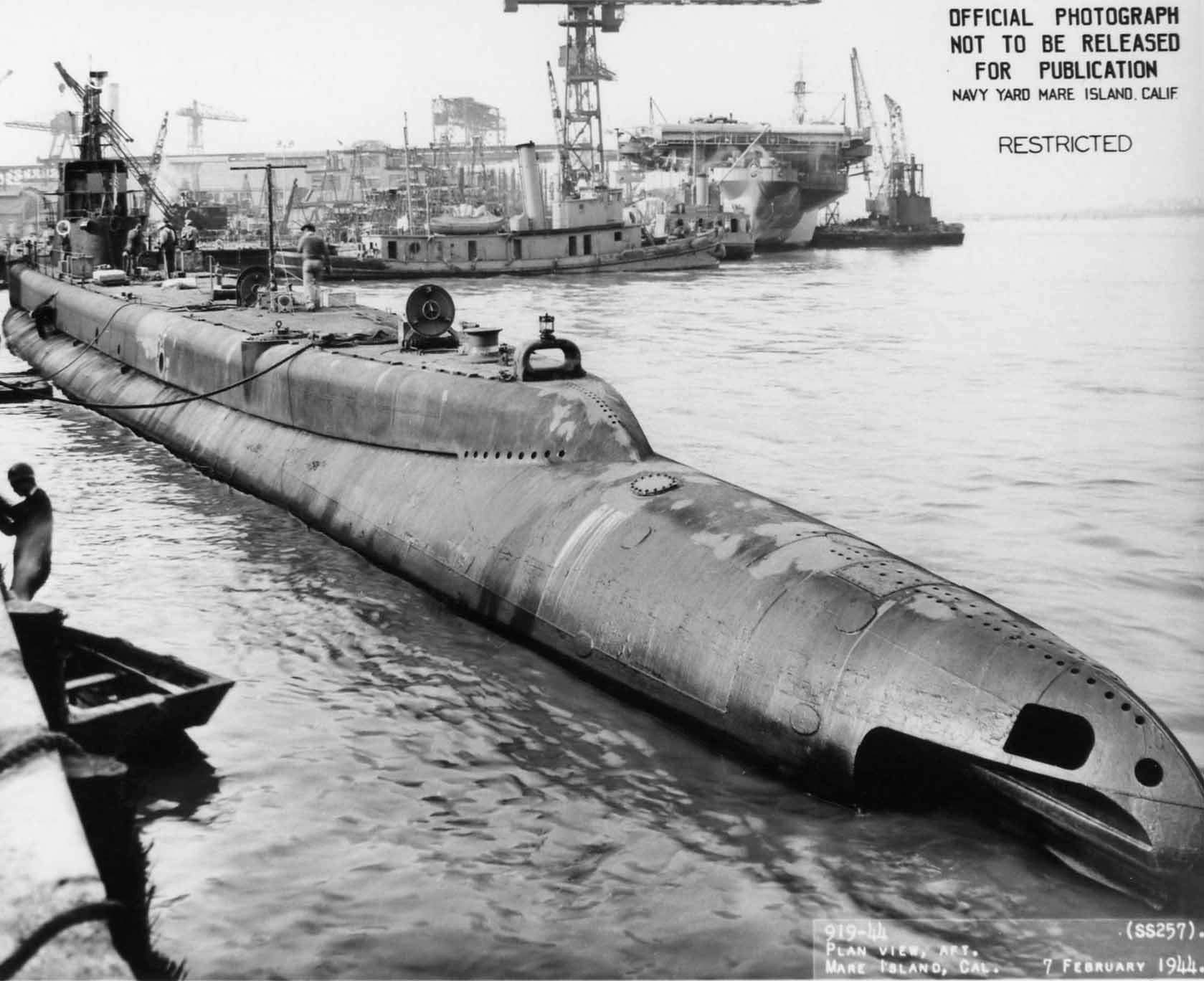
April 30 marks the 225th anniversary of George Washington’s presidential inauguration in 1789. Not only was it Washington’s first inauguration, but it was America’s as well, and although not everything went according to plan, the event set precedents for the many other inaugurations that would eventually follow.
 The inauguration was originally set for the first Wednesday in March, but the counting of the electoral votes, which would decide the presidential race, was delayed for a month due to bad weather. So Washington wasn’t declared the winner until April 6, and with the time it took to inform him of his victory—and for him to travel to New York City from Virginia—the inauguration wasn’t held until April 30.
The inauguration was originally set for the first Wednesday in March, but the counting of the electoral votes, which would decide the presidential race, was delayed for a month due to bad weather. So Washington wasn’t declared the winner until April 6, and with the time it took to inform him of his victory—and for him to travel to New York City from Virginia—the inauguration wasn’t held until April 30.
Washington was administered the oath of office by the Chancellor of New York, Robert R. Livingston, at Federal Hall on a second-story balcony—so he could be seen by the crowds below. He then appeared before Congress to give an inaugural address, during which he was visibly nervous.
Washington largely avoided specific policy recommendations in his 10-minute speech, which was likely drafted by James Madison. Instead he brought up his reservations about being president and acknowledged God’s role in America’s independence. He also discussed how national policy will inevitably reflect the morality and virtues of lawmakers and the American people, and that Congress should take into account “the characteristic rights of freemen and a regard for the public harmony” when deciding whether to make amendments to the Constitution. Though the speech wasn’t mandated by the Constitution, every president since Washington has followed his example and given an inaugural speech.
After his address was over, Washington and members of Congress attended a church service at St. Paul’s Church. Later in the evening, the inauguration was celebrated with fireworks and other festivities.
If you’re interested in George Washington’s years as president, you can explore Fold3’s collection of his presidential correspondence. Or browse our Revolutionary War collection for his wartime letters to the Continental Congress, as well as the service records, pension applications, and other documents of the men who served under him.





I wish there was a way to share this on Facebook.